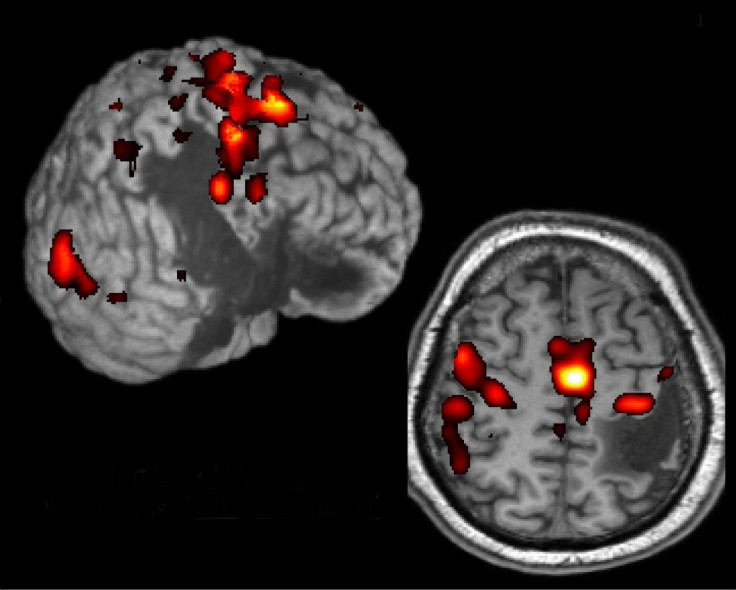1 in 4 Stroke Patients Experience PTSD; 'It's Nothing To Be Ashamed Of' Says Study Author

Is there a connection between stroke and PTSD?
Post-traumatic stress disorder, or PTSD, is most commonly associated with returning veterans — the mental health issues soldiers face after the traumatizing experience of war, death, and destruction. But citizens can develop PTSD too, for a wide range of reasons: being robbed, for example, can cause symptoms of the disease. So can sexual or physical abuse, living through a natural disaster, or the sudden death of a loved one.
Now, scientists are saying that PTSD can be triggered by acute diseases — including stroke. In a recent study published in PLOS One Columbia University Medical Center researchers say that based on a meta-analysis of past studies, they have determined that one in every four stroke or transient ischemic attack (TIA) patients end up suffering from PTSD within a year of the event — adding up to nearly 300,000 ever year.
This study adds to what is now a growing body of research connecting PTSD to serious medical events. For example, a 2007 study published in JAMA Psychiatry linked acute coronary syndrome (an umbrella term for any situation in which the blood supplied to the heart muscle is suddenly blocked — including heart attacks) to PTSD. That study also found that patients with PTSD had double the risk of recurring cardiac events.
But this, the authors of the study say, is "the first meta-analytic review of stroke or TIA-induced PTSD." In the study, the researchers attempted to identify every study available that connected PTSD to stroke or TIA — all in all, they looked at nine different studies, which included 1,138 stroke or TIA survivors. According to the study, approximately 23 percent of patents developed PTSD symptoms with the first year after their stroke or TIA. For many, the symptoms of PTSD subside -— but not all; nine percent experience chronic PTSD a year later (two years after the event).
"PTSD is not just a disorder of combat veterans and sexual assault survivors, but strongly affects survivors of stroke and other potentially traumatic acute cardiovascular events as well," said Ian M. Kronish, MD, MPH, the study's senior author. "Surviving a life-threatening health scare can have a debilitating psychological impact, and health care providers should make it a priority to screen for symptoms of depression, anxiety, and PTSD among these patient populations."
According to the Mayo Clinic PTSD symptoms can be grouped into three categories: intrusive memories; avoidance and emotional numbing; and anxiety and increased emotional arousal. Typically, people with PTSD have nightmares, will attempt to avoid any reminder of the event, and will experience ongoing elevated heart rate and blood pressure.
The study notes that besides the discomforting and sometimes debilitating symptoms of PTSD themselves, the symptoms can have additional negative health effects: "Stroke-induced PTSD symptoms appear to influence important secondary prevention behaviors such as medication adherence, independent of depression," says the study. PTSD suffers may avoid taking their medication because it reminds them of the traumatic event — and as a result, are more likely to suffer a second stroke or TIA. Because of this, the authors of the study recommend that doctors consider screening for PTSD in all stroke survivors.
Strokes occur when the blood supply to your brain is interrupted and brain cells begin to die. It is extremely dangerous — it is the fourth leading cause of death in the U.S., and the number one cause of disability. According to the American Stroke Association, 795,000 Americans suffer a stroke every year. A TIA is similar to a stroke, but is much less serious — it is sometimes called a "mini stroke." However, one in every three people who have a TIA will eventually have a stroke.
Because strokes are so debilitating, it isn't surprising that they can have long-lasting emotional scars. But for many years, medical professionals never connected the disease (and others to PTSD). Perhaps with growing awareness of PTSD in veterans, knowledge of the condition will trickle down into other areas — including in those who have suffered terrifying medical events like strokes and heart attacks.
Besides additional research into the connections between PTSD and stroke, ""The next step is further research to assess whether mental health treatment can reduce stroke- and TIA-induced PTSD symptoms and help these patients regain a feeling of normalcy and calm as soon as possible after their health scare," said first author of the study, Donald Edmondson, PhD, MPH.
Edmondson also encouraged loved ones of stroke survivors to take up a role in helping the patients. "I really hope this research lets survivors and their family members know it's not weird and it's nothing to be ashamed of," he told Healthday. "It's treatable. Tell somebody."
Source: Edmondson, D, Richardson, S, Fausett, K, et all. Prevalence of PTSD in Survivors of Stroke and Transient Ischemic Attack: A Meta-Analytic Review. PLOS ONE. 2013
Published by Medicaldaily.com



























